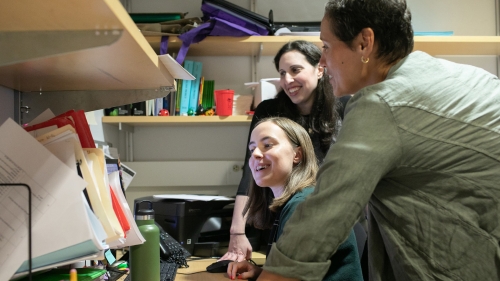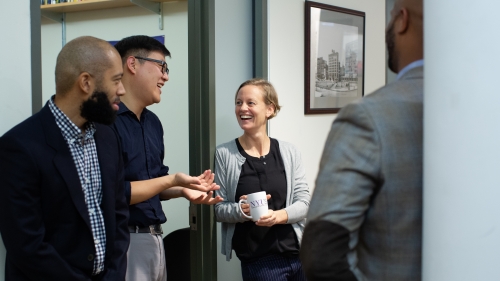

Joshua Aronson directs the Mindful Education Lab, a group of psychologists and neuroscientists dedicated to using research to improve the environments and psychological functioning and learning of people confronted with stress. Internationally known for his pioneering research on “stereotype threat” and “Growth Mindset,” Joshua’s work has been featured in popular books like Blink, Nurtureshock, Mindset, Drive, Nerve, Choke, Grit — and longer titles like Lean In, How Children Succeed, Intelligence and How to Get It, and Whistling Vivaldi. His work has been referenced in 4 Supreme Court cases is widely cited in Law, Education, Psychology, and human development. Listed by Education Week among most influential education scholars in America, Joshua is the editor of Improving Academic Achievement (Academic Press) and Readings about the Social Animal, and is Co-author of the The Social Animal.
His current work helps schools become environments that promote excellence in cognitive, socio-emotional, and moral development by incorporating social psychological interventions including mindfulness and meditation into classrooms, and by developing "4-dimensional curriculum" to improve learning, curiosity, critical thinking self-control, and purpose. Joshua is executive advisor to the Casa Laxmi Foundation, designed to develop leadership and academic success in the world's most impoverished children.
Selected Publications
- Aronson, A year of Living Deathfully. Psychology Today, January 2021
- Aronson, E. & Aronson, J. (2018). The Social Animal, 12th edition. New York, Worth/Freeman.
- Aronson, J., Burgess, D., Phelan, S. M., & Juarez, L. (2013). Unhealthy interactions: The role of stereotype threat in health disparities. American journal of public health, 103(1), 50-56.
- Steele, C. M., & Aronson, J. (1995). Stereotype threat and the intellectual test performance of African Americans. Journal of personality and social psychology, 69(5), 797.
- Aronson, J. , Fried, C. & Good, C. (2002). Reducing the Effects of Stereotype Threat on African American College Students by shaping theories of intelligence. Journal of Experimental Social Psychology. 38, 113-125.
- Good, C., Aronson, J., & Inzlicht, M. (2003). Improving adolescents' standardized test performance: An intervention to reduce the effects of stereotype threat. Journal of Applied Developmental Psychology, 24(6), 645-662.
- Aronson, J. (2002). Improving academic achievement: Impact of Psychological Factors on Education. San Diego: Academic Press.
- Aronson, J. & Steele, C.M. (2005). Stereotypes and the fragility of human competence, motivation, and self-concept. In C. Dweck & E. Elliot (Eds.), Handbook of Competence & Motivation. New York, Guilford.
- Aronson, J. & Inzlicht, M. (2004). The ups and downs of attributional ambiguity: Stereotype vulnerability and the academic self-knowledge of African-American students. Psychological Science, 15, 12, 829-836.
- Aronson, J., Lustina, M. J., Good, C., Keough, K., Steele, C. M., & Brown, J. (1999). When white men can't do math: Necessary and sufficient factors in stereotype threat. Journal of Experimental Social Psychology, 35, 29-46.
- Nisbett, R. E., Aronson, J., Blair, C., Dickens, W., Flynn, J., Halpern, D. F., & Turkheimer, E. (2012). Intelligence: new findings and theoretical developments. American psychologist, 67(2), 130.

